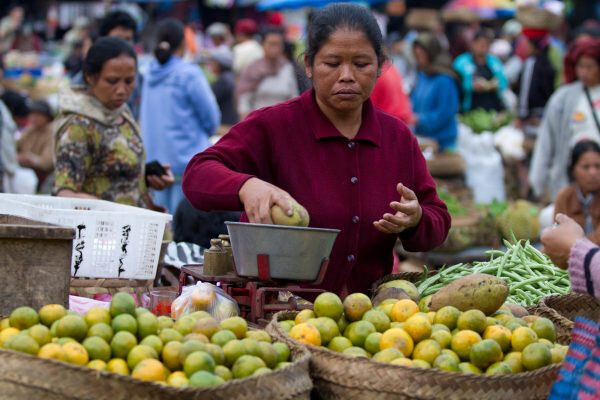
MANILA, Philippines – The Philippines is emerging as the most promising investment destination among Southeast Asian emerging markets, propelled by decelerating inflation and a strengthening peso. DBS Bank projects the Philippine Stock Exchange index (PSEi) to reach 6,900 points by the end of this year, underscoring a positive shift in the Philippine economy.
Market Optimism Driven by Easing Inflation and Stronger Peso
According to DBS Bank's second-half regional market outlook, the key factors that have pressured the Philippine stock market over the past 24 months are now turning favorable. DBS notes that Philippine inflation has "meaningfully moderated," and the peso has regained strength against the US dollar.
In fact, the Philippines' May inflation registered 1.3%, lower than April's 1.4%, marking nearly a six-year low. This deceleration is largely attributed to lower utility costs, including reduced electricity rates. Meanwhile, the Philippine peso strengthened against the dollar, closing at 55.62 pesos last Friday, up from 55.77 pesos on Thursday. Japan's MUFG Bank also anticipates the peso to strengthen to 54.50 pesos per dollar by the first quarter of 2026.
These factors provide the Bangko Sentral ng Pilipinas (BSP), the country's central bank, with more leeway for interest rate cuts. DBS predicts that these developments will "set a constructive backdrop for the Philippine equity market in the second half of 2025." Interest rate cuts can lower borrowing costs for businesses and stimulate consumption, thereby boosting economic activity.
Top Economic Growth Outlook in the Region and Low Trade Dependency
The Philippines is projected to achieve a 5.8% economic growth rate this year, the highest forecast among Southeast Asian nations. This figure significantly surpasses Singapore's 2%, Thailand's 1.8%, and Indonesia's 4.8%. High economic growth typically translates to increased corporate earnings, positively impacting the stock market.
Adding to the optimistic outlook is the Philippines' lower reliance on trade for economic growth compared to other Southeast Asian countries. For instance, the Thai economy's high dependence on exports makes it a less attractive market for investors. This suggests that the Philippines is relatively more resilient to external shocks, especially in an era of increasing global trade uncertainties.
Notably, even after the expiration of US President Donald Trump's 90-day tariff truce on July 31st, the Philippines is expected to be one of the least affected countries. Last year, the Philippines primarily exported semiconductors, electronic product assemblies, and agricultural products to the United States. This resulted in a net export surplus of $5.3 billion, equivalent to 1.2% of the Philippines' GDP. Even if the currently suspended 17% tariffs are reinstated, DBS notes that "given that key exports such as semiconductors remain exempt from proposed tariff measures, the impact could be even more negligible."
Robust Corporate Earnings Outlook
The earnings outlook for companies listed on the Philippine Stock Exchange benchmark, PSEi, remains robust. An 11% earnings growth is expected this year, followed by 7% in 2026, primarily driven by the domestic nature of these companies' revenue streams.
DBS stated, "Key sectors like banks, utilities, real estate, and conglomerates are largely insulated from external trade shocks, further underpinning a robust earnings trajectory even amid elevated global uncertainties." This suggests that Philippine companies can continue to achieve stable growth based on their strong domestic market.
Comprehensive Market Analysis and Investment Implications
Overall, the Philippine market is emerging as the most attractive investment destination in Southeast Asia due to a combination of factors: decelerating inflation, a strengthening peso, a high economic growth outlook, and an economy with low trade dependency. The potential for interest rate cuts and robust corporate earnings will serve as positive signals for investors.
However, DBS's mentioned estimated equity risk premium of 490 basis points indicates that investors are still cautious about residual risks. A prudent approach to buying stocks at high valuations is necessary, and continuous monitoring of external factors such as global economic uncertainties and geopolitical risks is required.
This analysis provides crucial information for investors seeking opportunities in the Philippine market and suggests that the Philippines could be an attractive alternative for those considering diversifying their Southeast Asian market exposure.
[Copyright (c) Global Economic Times. All Rights Reserved.]




























